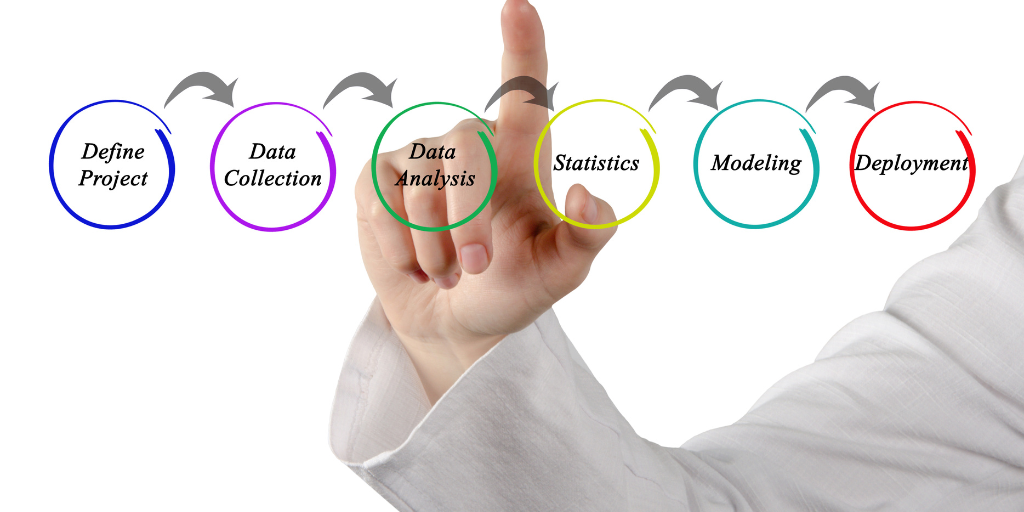In today's technologically advanced world, businesses are constantly looking for ways to improve their operations and boost customer satisfaction. The adventure park industry is no exception. One such method gaining momentum in the world of amusement parks is predictive analytics. In this article, we'll explore the role of predictive analytics in adventure parks, discussing its benefits, challenges, and future trends.
Understanding Predictive Analytics
How It Works
Predictive analytics is a powerful tool that uses historical data, statistical algorithms, and machine learning techniques to predict future outcomes or events. By analyzing patterns and trends in the data, businesses can make informed decisions to improve their operations, increase efficiency, and enhance customer experiences.
Benefits
Some benefits of predictive analytics include:
- Improved decision-making based on data-driven insights
- Enhanced customer experiences through personalization
- Increased operational efficiency and cost savings
- Improved risk management and safety measures

Predictive Analytics in Adventure Parks
Safety Management
Safety is a top priority in ropes courses and zipline parks. Predictive analytics can help identify potential safety hazards, such as mechanical issues or unsafe ride conditions, by analyzing historical data and detecting patterns. By proactively addressing these issues, parks can minimize the risk of accidents and maintain a safe environment for their guests.
Crowd Control
Managing crowd flow is essential for adventure parks. Predictive analytics can help park managers forecast visitor numbers and allocate resources effectively, ensuring that queues and wait times are minimized. This not only improves guest satisfaction but also helps parks maintain a balanced distribution of visitors throughout the park, preventing overcrowding and potential safety issues.
Personalized Experiences
In a competitive market, adventure parks must offer unique and memorable experiences. Predictive analytics enables parks to create personalized experiences for their guests, using data to understand individual preferences and tailor attractions, offers, and communications accordingly. This can lead to increased customer loyalty and repeat visits.
Revenue Optimization
Predictive analytics can help ropes courses and zipline parks maximize their revenue by optimizing pricing strategies, promotional offers, and resource allocation. By analyzing historical data and visitor patterns, parks can identify trends and opportunities to increase sales, upsell products, and enhance overall profitability.
Maintenance and Repair
Routine maintenance and repair are crucial to ensure the smooth operation of adventure parks. Predictive analytics can help park managers identify equipment that may
be in need of maintenance or repair before it becomes a critical issue. This proactive approach can help reduce downtime, minimize costs, and ensure that attractions are always running efficiently and safely.

Challenges of Implementing Predictive Analytics
Data Collection
Collecting accurate and relevant data is critical for the success of any predictive analytics project. Adventure parks may face challenges in gathering sufficient data to create meaningful insights, as well as ensuring the quality and consistency of the data collected. Implementing proper data collection processes and integrating disparate data sources are essential steps in overcoming this challenge.
Privacy Concerns
With predictive analytics relying heavily on the use of personal data, privacy concerns can arise. Ropes courses and zipline parks must ensure they adhere to data protection regulations and maintain transparency with their guests regarding how their data is used. Implementing strong privacy policies and obtaining consent from visitors for data collection and usage are crucial steps in addressing privacy concerns.
Initial Investment
Implementing predictive analytics in adventure parks can require a significant initial investment, including the acquisition of relevant technology, software, and skilled personnel. While the potential benefits and long-term cost savings can be substantial, smaller parks may struggle to finance the initial investment required.
Future Trends
As technology continues to advance, the adoption of predictive analytics in adventure parks is expected to grow. Some future trends include:
- The integration of Internet of Things (IoT) devices to collect real-time data for more accurate predictions
- The use of artificial intelligence (AI) and machine learning to create more sophisticated models and insights
- The incorporation of virtual and augmented reality technologies to enhance personalized experiences and improve safety measures
Conclusion
Predictive analytics has the potential to revolutionize the adventure park industry, offering numerous benefits such as improved safety management, better crowd control, personalized experiences, revenue optimization, and proactive maintenance and repair. While there are challenges in implementing predictive analytics, such as data collection, privacy concerns, and initial investment, the future trends point to a growing adoption of this technology in the industry. As ropes courses and zipline parks continue to embrace predictive analytics, they can look forward to an enhanced guest experience, increased efficiency, and a competitive edge in the market.
FAQs
-
What is predictive analytics?
Predictive analytics is a technique that uses historical data, statistical algorithms, and machine learning to predict future events or outcomes.
-
How can predictive analytics improve safety in adventure parks?
Predictive analytics can help identify potential safety hazards by analyzing historical data and detecting patterns, allowing park managers to address issues proactively and minimize the risk of accidents.
-
How does predictive analytics help with crowd control in adventure parks?
Predictive analytics can help park managers forecast visitor numbers, enabling them to allocate resources effectively and manage crowd flow, reducing wait times and preventing overcrowding.
-
Can predictive analytics increase revenue for adventure parks?
Yes, predictive analytics can help parks optimize pricing strategies, promotional offers, and resource allocation, leading to increased sales and overall profitability.
-
What are some future trends in predictive analytics for adventure parks?
Future trends include the integration of IoT devices for real-time data collection, the use of AI and machine learning for more sophisticated insights, and the incorporation of virtual and augmented reality technologies to enhance personalized experiences and safety measures.
Additional expert information on the Adventure Business
Interested to read more about the Adventure Business with our expert articles?
- Logistics and throughput in Adventure Parks, key elements in Customer satisfaction
- Profitable Upgrades for Aerial Adventure Parks
- Integrating Gaming Technology into Adventure Parks
- Optimizing Adventure Park Operations: The Power of Predictive Analytics
- The Benefits of Integrating Urban Adventure Play in Commercial Retail
- Creating Profitable Adventure Parks: Tips and Strategies
- Roller Coaster Zipline: The Thrilling and Profitable Amusement Solution
- Prioritizing Safety: The Key to Success in Aerial Adventure Parks
- Maximize Your Adventure Park's Potential with an Online Reservation System
- Importance of a Safety and Quality Management System at Adventure Parks
- Virtual Reality Training in Adventure Parks: Revolutionizing Skill Development and Safety
- Climbing to New Heights: Boosting Traffic and Revenue with an Indoor Ropes Course
- How to Launch a Zip Line Company
- Ride a bike modified to attach to a zipline cable
- Adopting Universal Design and Adaptive Techniques for Inclusive Adventure
- From Skills to Thrills: How to Start and Run a Successful Adventure Business
- Thinking of investing and operating a Zipline? We got you covered with this expert article!
- Rope Course Construction: A Comprehensive Guide
- Leisure and Adventure in Retail Real Estate: The Future of Shopping
- The Benefits of Netted Attractions for Operators and Guests
- Thrills Adventure for Family Entertainment Centers’














